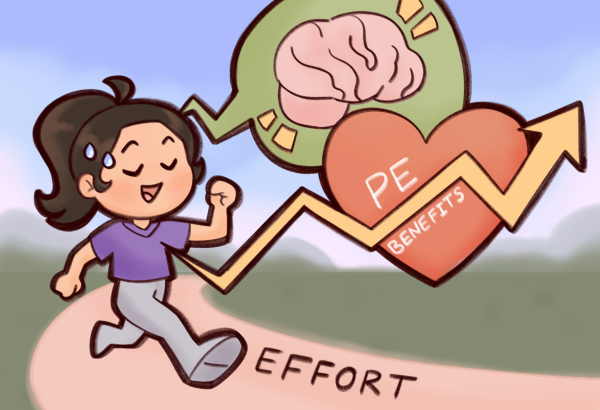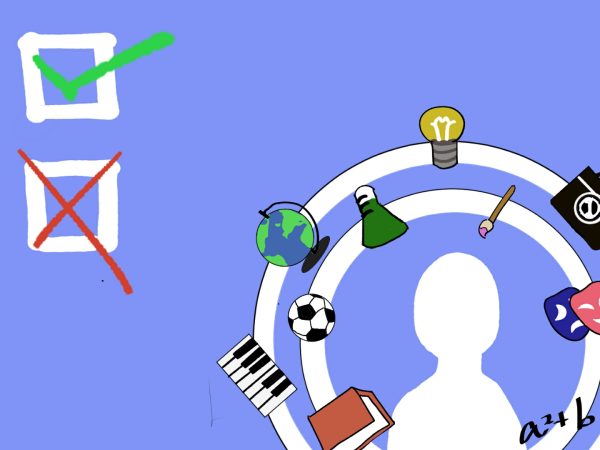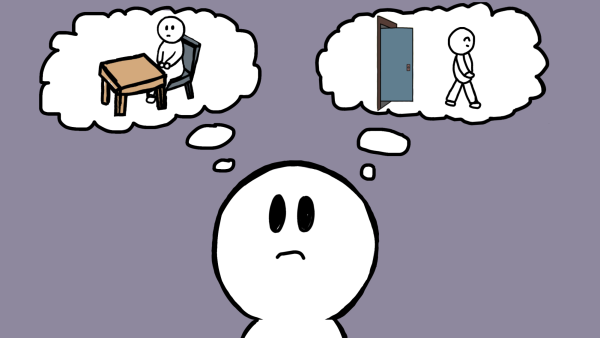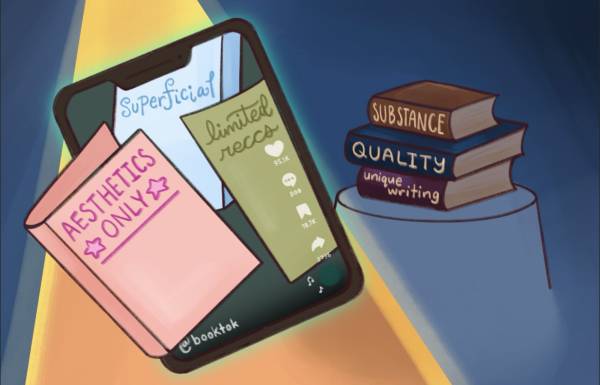Put Down the Phone and Read More Books
Spending many hours on a phone can lead to harmful effects like anxiety. Reading books allows students to reach a higher level of thinking and benefits them socially, according to NCBI.
Many students can relate to the experience of using their phones for hours on end just to feel bad afterward about wasting time they could have used on a more productive activity.
Rather than staying up late to continuously scroll on a phone, students should choose to participate in higher cognitive activities, like reading, to improve intellectual stimulation while being entertained at the same time.
According to the CDC, individuals from ages 8 to 18 spend an average of seven-and-a-half hours per day in front of a screen for entertainment purposes only. This amount of screen time is more than three times the recommended two hours per day. With this drastic overload in screen time, individuals are more likely to be exposed to the harmful side effects of excessive phone usage.
People who use their phones can be negatively affected when it comes to their social life. According to the Pew Research Center, nine out of 10 teenagers view spending too much time online as a problem when trying to connect with other people their age.
With the high number of individuals viewing their phones as something to depend on to get out of social situations, many of them have been found to validate the harmful effects of cell phone use such as anxiety and loneliness, according to the National Center for Biotechnology Information.
“There are, I would say, emotional and physical aspects; physical as in your eyes are not having a great time when you stare at the screen for that long because of blue light,” freshman Karl Chen said. “Emotionally, you’re just being a slave to the internet, and you’re just holding onto whatever it is inside the internet and actually forgetting about real life.”
Unlike phones, reading physical books can promote cognitive development while allowing students to feel entertained by the material.
According to NBCI, reading books has been shown to promote deep reading, which is a cognitive engagement that occurs when a reader draws connections to the content of the book. Deep reading leads to higher concentration and critical thinking skills and can also promote social perception, since many books shed light on people’s values and social norms.
“I feel like I’m not as intellectually stimulated when I’m on my phone,” junior Aarani Narenthiran said. “Whereas when I’m reading books, I feel like I’m learning more new words, and I feel like it’s a better way to stay engaged rather than using my phone.”
Overall, it is important for students to recognize the harmful social effects of using phones for entertainment, and should start reading more books for better effects.
Your donation will support the student journalists of Portola High School. Your contribution will allow us to purchase equipment and cover our annual website hosting costs.

Claire Chan is the front page editor and news photo editor for her second and final year on the Portola Pilot. She is looking forward to making the best...














